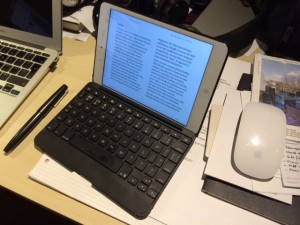This morning’s Observer column:
Twenty years ago this week, a software developer in California ushered in a new era in how we communicate. His name is Dave Winer and on 7 October 1994 he published his first blog post. He called it Davenet then, and he’s been writing it most days since then. In the process, he has become one of the internet’s elders, as eminent in his way as Vint Cerf, Dave Clark, Doc Searls, Lawrence Lessig, Dave Weinberger or even Tim Berners-Lee.
When you read his blog, Scripting News – as I have been doing for 20 years – you’ll understand why, because he’s such a rare combination of talents and virtues. He’s technically a very gifted software developer, for example. Many years ago he wrote one of the smartest programs that ever ran on the Apple II, the IBM PC and the first Apple Mac – an outliner called ThinkTank, which changed the way many of us thought about the process of writing. After that, Winer wrote the first proper blogging software, invented podcasting and was one of the developers of RSS, the automated syndication system that constitutes the hidden wiring of the blogosphere. And he’s still innovating, still pushing the envelope, still writing great software.
Technical virtuosity is not what makes Winer one of the world’s great bloggers, however. Equally important is that he is a clear thinker and writer, someone who is politically engaged, holds strong opinions and believes in engaging in discussion with those who disagree with him. And yet the strange thing is that this opinionated, smart guy is also sensitive: he gets hurt when people write disparagingly about him, but he also expresses that hurt in a philosophical way…




